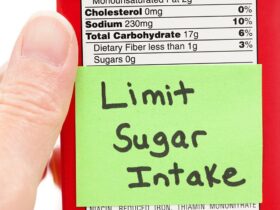Jenny had no idea why her stomach was turning on her.
She went to her favorite pizzeria for lunch, and now she found herself doubled over in pain. What Jenny didn’t know was that she’d developed a sudden case of lactose intolerance. While some people are born with issues digesting dairy products, others start having problems with milk products in adulthood.
About 30-50 million Americans are lactose intolerant. If you’re having issues with dairy products, then you’re in the right place. In this article, we’ll review all of the common dairy intolerance symptoms, as well as what you can do about it.
Read on to learn everything you need to know about being lactose intolerant.
Painful Stomach Cramps
Your small intestine is responsible for producing lactase, an enzyme that helps you digest lactose. Lactose is milk sugar, and lactase usually helps turn the milk sugar into glucose and galactose for easy absorption.
However, if you’re lacking in lactase, the milk sugar (lactose) enters your colon and begins fermenting. As your body releases acids and gas to ferment the lactose, it can cause excruciating cramps and stomach pains. The pain usually takes place around your belly button and in the lower part of your tummy.
Extreme Bloating
Next, lactose intolerance can also cause bloating. The increase of gas and water in your colon causes your gut wall to stretch out. The severity of bloating varies from one person to the next since it all depends on how you react to the sensation of your gut wall stretching.
Nausea and Diarrhea
When your gut wall stretches, it’s medically referred to as distension. If you’re particularly sensitive to the distention, you can start to experience nausea.
In extreme cases, you may also start vomiting. Finally, the increase in water in your colon can also cause severe diarrhea.
Do You Have a Milk Allergy?
Moving on, you’ll want to do your research to find out if you’re allergic to lactose, rather than a lactose intolerant. Having a milk allergy is much more severe than being lactose intolerant.
A milk allergy can cause a variety of abnormal responses to cows’ milk, such as hives, swollen lips, and difficulty breezing. If you think you’re allergic to lactose you should contact your primary care physician right away to get a diagnosis.
Lactose Intolerance Treatments
Lastly, let’s review a few of the best lactose intolerance treatments! For starters, limit your milk and dairy products, by using lactose-free products instead. Next, consider adding a powder lactase enzyme to milk or icecream. You can also talk to your doctor about beginning a probiotic regime to make your gut extra strong.
Keep Your Stomach Happy
After reading this article, do you think you’re dealing with lactose intolerance? If you’re experiencing more than just a little tummy ache after using dairy products then it might be time to talk to your doctor. Explain all of the symptoms you’re experiencing, and be prepared to express how severe each symptom is.
Finally, the next time you’re at the grocery store, take a moment to check out all of the awesome lactose-free products available. For more health tips like these, explore the rest of this site.







